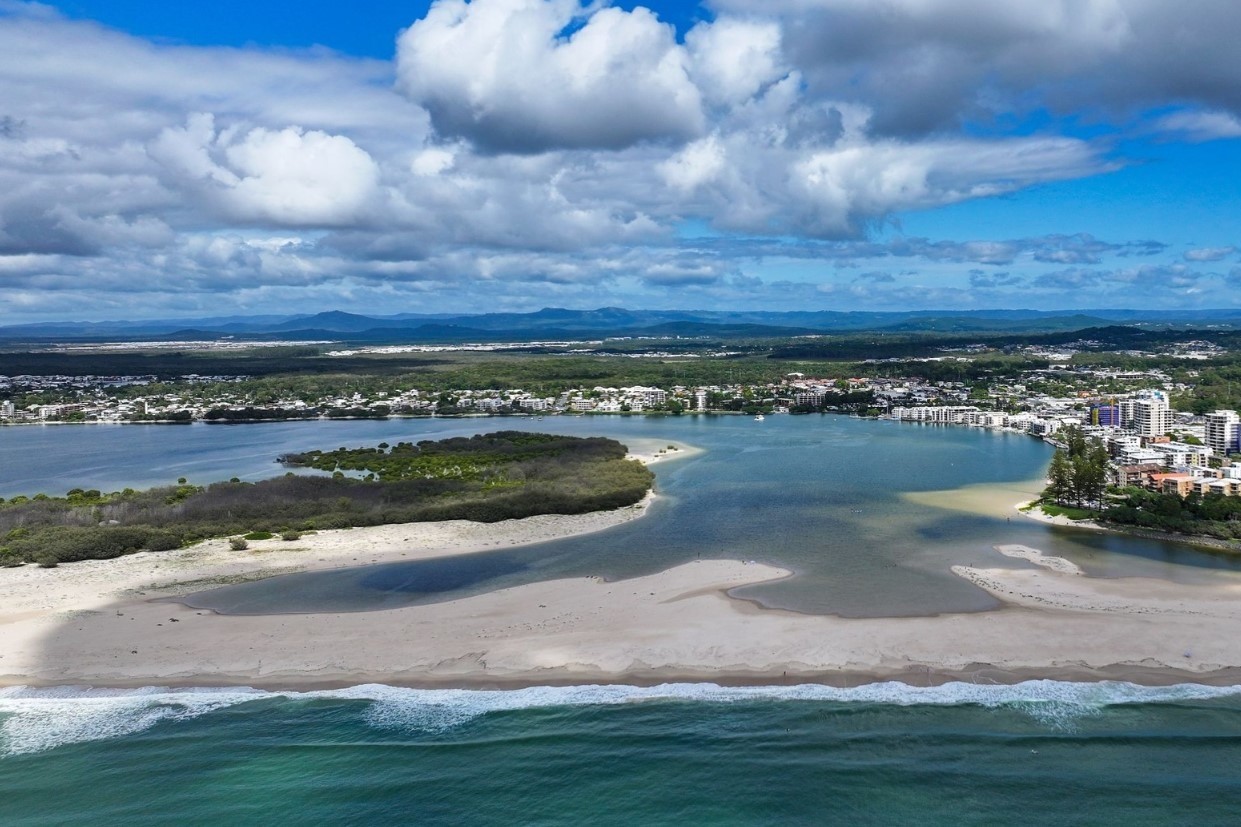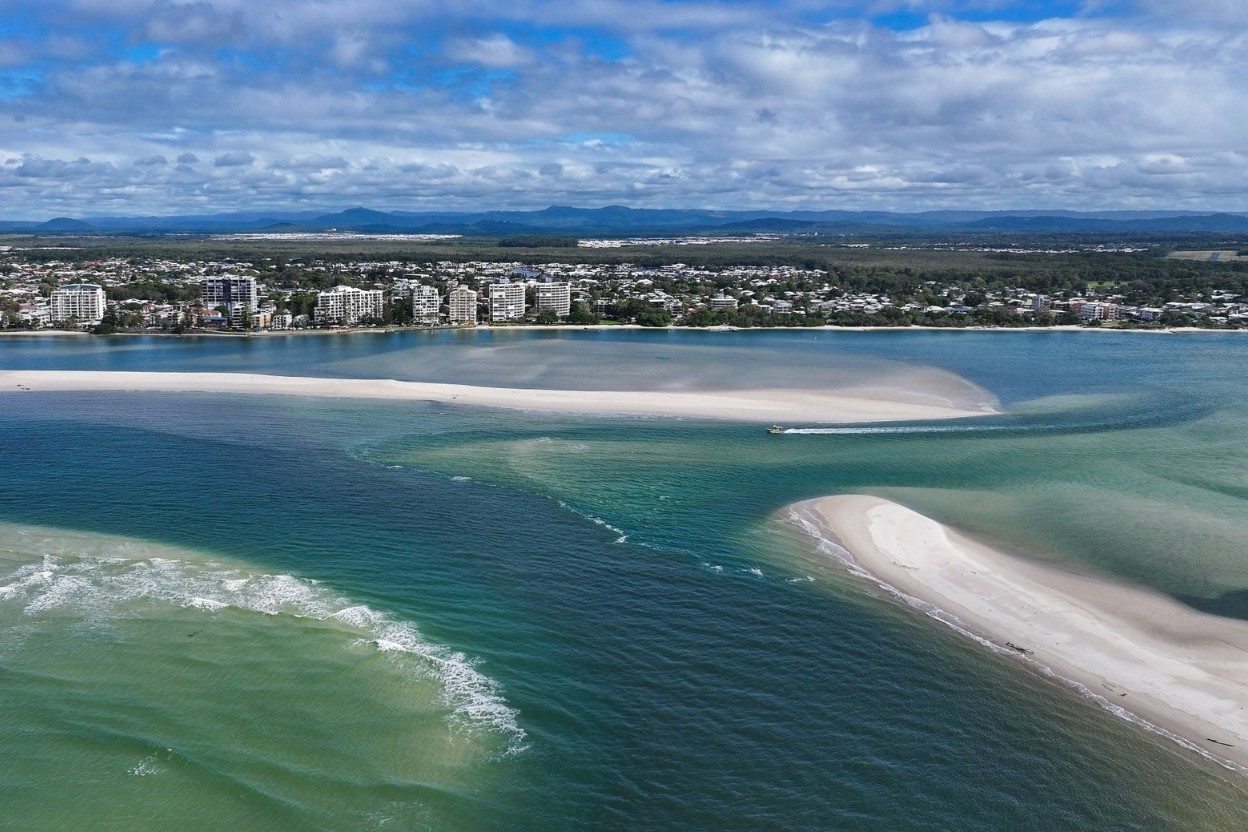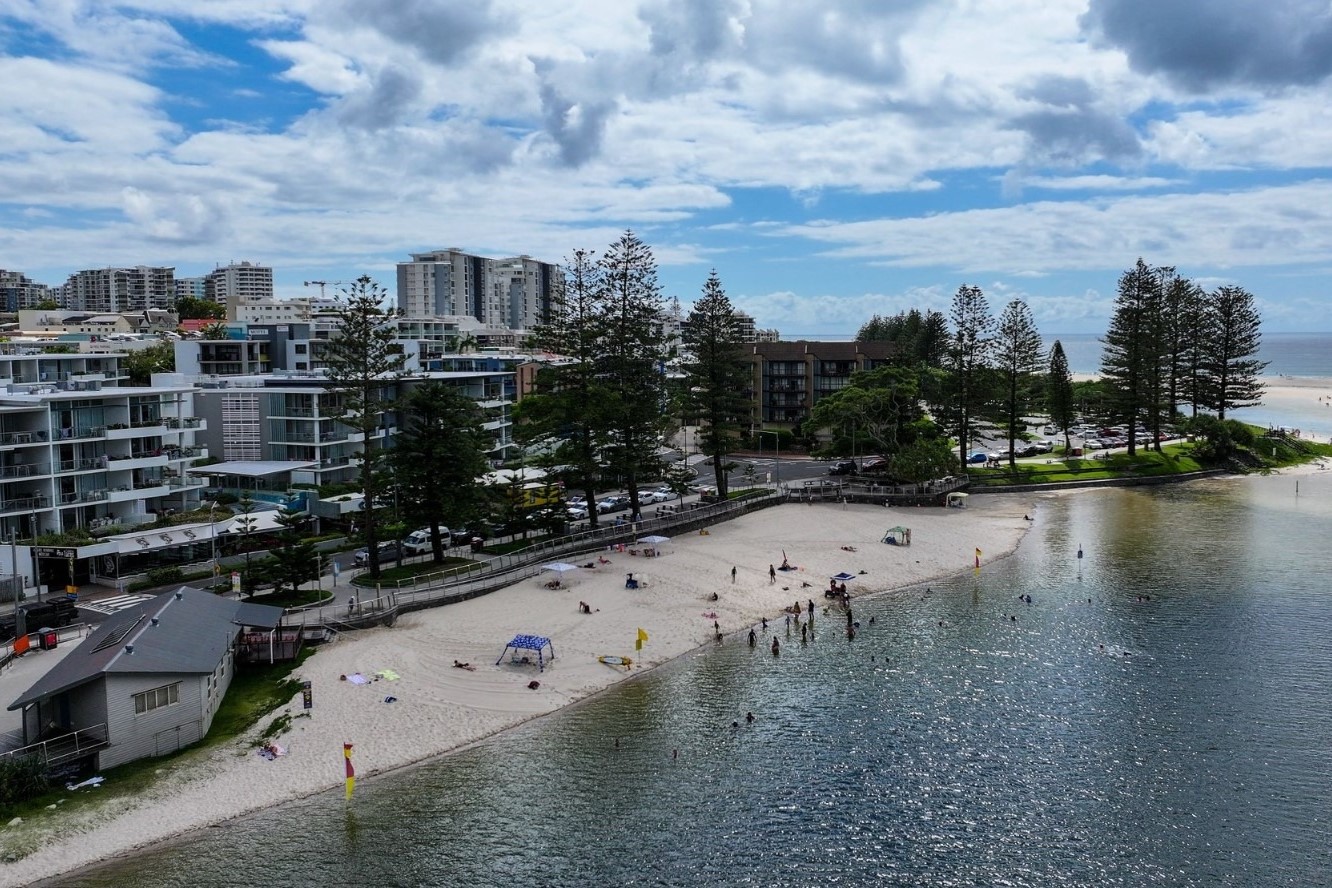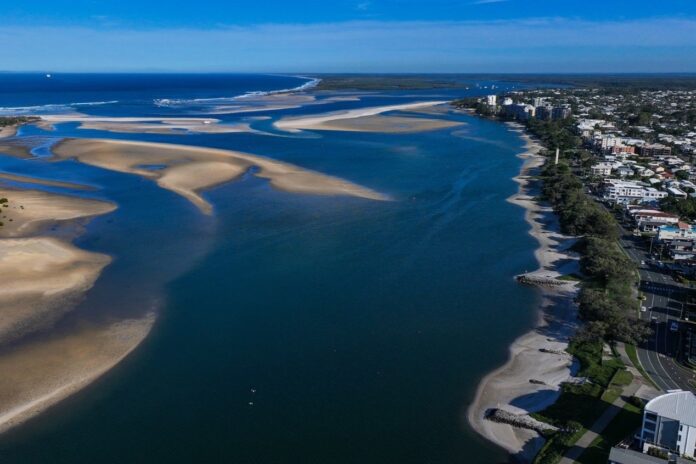Fresh concerns have emerged about water quality in a major Sunshine Coast waterway but authorities say that while occasional spikes do occur, long-term data shows no overall decline.
Conservation group Take Action for Pumicestone Passage (TAPP) has renewed calls for closer scrutiny after independent testing appeared to reveal elevated levels of E. coli and heavy metals following heavy rain.
The state government acknowledged that higher readings, particularly of enterococci, can follow extreme weather events but said decades-long monitoring showed no significant change in overall water quality.
The Minister for the Environment Andrew Powell also recently moved to alleviate fears about the northern end of the passage, after tidal breakthroughs changed water movement there.
University of the Sunshine Coast Associate Professor Erin Price, commissioned by TAPP to run tests at two sites from August to December last year, said her team detected “very concerning” levels of E. coli at the Coast Guard jetty site, off Tripcony Lane, after two wild weather events, pointing to possible contamination from stormwater runoff.
“E. coli is a gut-associated bacterium that is usually only present at very low levels, if at all, in healthy waterways,” she told Sunshine Coast News.
“It was very concerning to see such an enormous increase (in E. coli) following those two heavy rain events last year.
“Such high counts pose a potential public health risk to everyone, but particularly at-risk individuals.
“Based on our small study, I recommended that recreational activities at the Coast Guard jetty site should be avoided by at-risk people when water salinity is at or below 2 per cent, or following several days of heavy rain.”
Want more free local news? Follow Sunshine Coast News on Facebook, LinkedIn and Instagram, and sign up for our FREE daily news email.

TAPP president Ken Mewburn said testing for the group’s water quality subcommittee had also identified heavy metals, including traces of lead, in some stormwater outlets. The subcommittee is led by Dr Peter Kamen, a research fellow at the Centre for Bioinnovation at UniSC.
“We have concerns regarding the health risk for the community using the passage for recreation purposes,” Mr Mewburn said.
“Despite assurances from the department, we believe there is need to encourage a response from local council and government.
“Levels of lead were identified and were of sufficient concern to need further investigation from nearby creeks and water courses.”
Meanwhile, Dr Kamen said “the results are quite concerning”.
“(The findings) pose important questions regarding the health of our waterways,” he said.
A Department of the Environment, Tourism, Science and Innovation (DETSI) spokesperson said the government monitored the condition of the passage through monthly sampling and real-time data collection at several sites. Many of these sites have been monitored for more than 20 years.
“We have not detected any significant changes in water quality during this time,” they said.

“We presently take water quality samples monthly at sites throughout the Pumicestone Passage and have not seen any unusual enterococci concentrations.
“The only high enterococci concentrations within the northern passage have been associated with extreme wet weather events such as following Tropical Cyclone Alfred in March 2025.”
TAPP did not request Assoc. Prof. Price to do any enterococcal testing when they commissioned the small investigation. She tested for E. coli. Enterococci are gram-positive bacteria that are different to E. coli.
The spokesperson said DETSI monitored water quality at 10 sites within the passage, including a telemetry buoy that provides data on physical and chemical conditions every 10 minutes.
They said more analysis would be undertaken if necessary.
“Monitoring practices have not significantly changed since the Bribie Island breakthrough, though more testing would be carried out if pollution is suspected or reported,” they said.
The Pumicestone catchment area was rated ‘very good’ in the last Healthy Land and Water Report Card for 2023, issued in early 2024. The report card is released every second year.

A Queensland Health spokesperson said the department was “not aware of any water quality data for Pumicestone Passage that indicate a heightened level of health risk, or of any current or past health advisories for this location”.
DETSI stated that, in Queensland, most councils also monitor for bacterial contamination and advise local communities about any concerns.
Sunshine Coast Council stated that it doesn’t test for recreational water quality.
But the Queensland Health spokesperson urged people to avoid swimming after extreme weather.
“The presence of increased levels of contamination at recreational water sites is common following heavy rainfall which is why, as a general precaution, we advise against swimming at beaches for up to three days following heavy rain, as rainfall can increase microbial levels in the water,” they said.
The discussion around water quality comes after the state government fast-tracks $20 million of emergency works for the Bribie Island breakthrough and after an independent review recommended that the island be rebuilt and the Caloundra Bar reopened.
If pollution is suspected, the public can report it to DETSI’s 24/7 Pollution Hotline on 1300 130 372. In such cases, additional water sampling is conducted and, when necessary, the department communicates with sewage treatment plants to address the issue.
Related stories: Concerns raised over wastewater at dog beach and Locals call for removal of sewage outfall pipe





